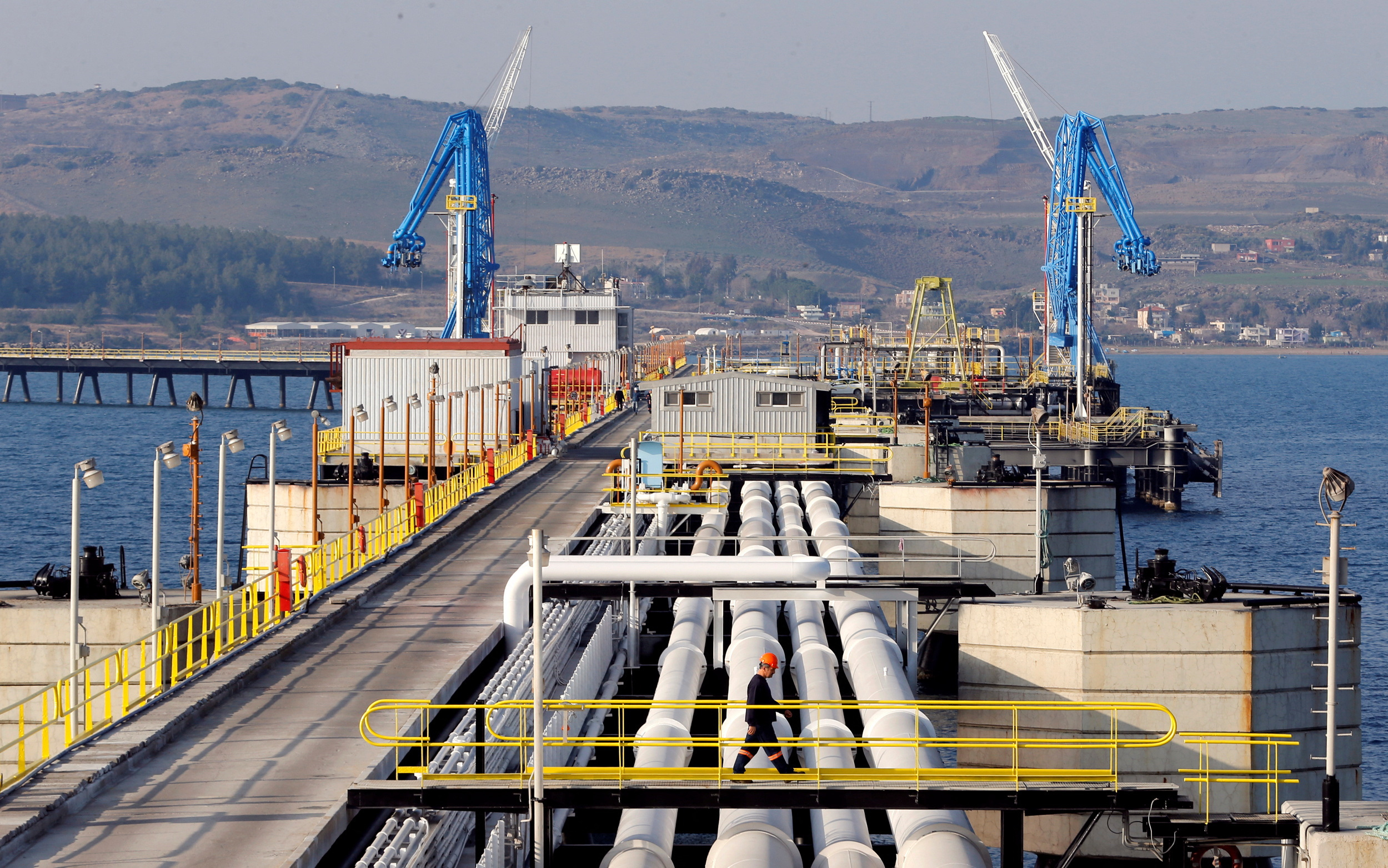
Summary
- Iraq-Turkey pipeline shut since March 2023
- Baghdad: around 225,000 bpd being produced without its oversight
- APIKUR says terms of current contracts must be maintained
- US encourages restart, State Dept. spokesperson says
(Reuters) – Foreign oil firms operating in Iraq’s Kurdistan region are partly to blame for the delay in resuming crude exports after failing to submit contracts for revision, Iraq’s oil ministry said.
The Iraq-Turkey oil pipeline (ITP) which once handled about 0.5% of global oil supply has been halted, stuck in legal and financial limbo, since March 2023.
The flows were halted after the Paris-based International Chamber of Commerce in a longstanding arbitration case ruled Ankara had violated provisions of a 1973 treaty by facilitating such exports without the consent of the Iraqi federal government.
Iraq’s oil ministry in a statement published late on Sunday noted that foreign companies, alongside the Iraqi Kurdish authorities, have still not submitted contracts for revision to the ministry.
The government is seeking to revise such deals after a court ruled ones signed with the Kurdistan Regional Government (KRG) were invalid, it said in response to a statement on Saturday by the Association of the Petroleum Industry of Kurdistan (APIKUR).
Iraq’s federal court in 2022 deemed an oil and gas law regulating the Kurdistan region’s oil and gas industry as unconstitutional.
Iraq owes Turkey minimum payments as long as the pipeline is technically operational – estimated by consultancy Wood Mackenzie at around $25 million per month. APIKUR has cited a similar figure saying it understands Iraq owes $800,000 in daily penalties.
APIKUR said the government of Iraq had not “taken the required actions” to reopen ITP, adding that “there has been no real progress” to reopen ITP despite meetings in Baghdad in January between representatives of the Iraqi government, the KRG and international oil companies.
APIKUR said its member companies’ “current commercial terms and economic model must be maintained” and called for payment assurances for past and future oil exports.
Iraq’s Prime Minister Mohammed Shia al-Sudani is due to meet U.S. President Joe Biden in Washington on April 15 to discuss the future of the U.S.-led coalition in Iraq, as well as Iraqi financial reforms and a U.S. push to wean Iraq – a rare ally of both Washington and Tehran – off Iranian power and gas.
APIKUR said it had conveyed to members of Biden’s administration and Congress that the White House should not proceed with the planned visit unless flows through ITP resume, international oil firms get payment assurances and the Iraqi government fully implements the Iraqi federal budget for the KRG.
U.S. ENCOURAGES RESTART
Responding to a Reuters request for comment, a U.S. State Department spokesperson said the U.S. government “encourages all parties to reach an agreement to resume the flow of oil through the Iraq-Turkey pipeline as soon as possible.”
“Restarting oil exports through the Iraq-Turkey pipeline would be beneficial for all parties,” the spokesperson said.
Reports from OPEC and international secondary sources showed that crude production in the Kurdistan region was approximately 200,000-225,000 barrels per day (bpd) without its knowledge or approval, the ministry said.
Iraq said in March it would reduce its crude exports to 3.3 million barrels a day in the coming months to compensate for having exceeded its OPEC+ quota since January, a pledge that would cut shipments by 130,000 bpd from last month.
The OPEC+ grouping of oil-producing nations has highlighted the importance of compliance even as oil prices have rallied this year.
“The lack of compliance with the oil policy approved by the federal government risks Iraq’s reputation and endangers its international commitments,” the ministry said.
Share This:




 CDN NEWS |
CDN NEWS |  US NEWS
US NEWS 




























Trump Is Scaring Republicans Away From Saving the Planet